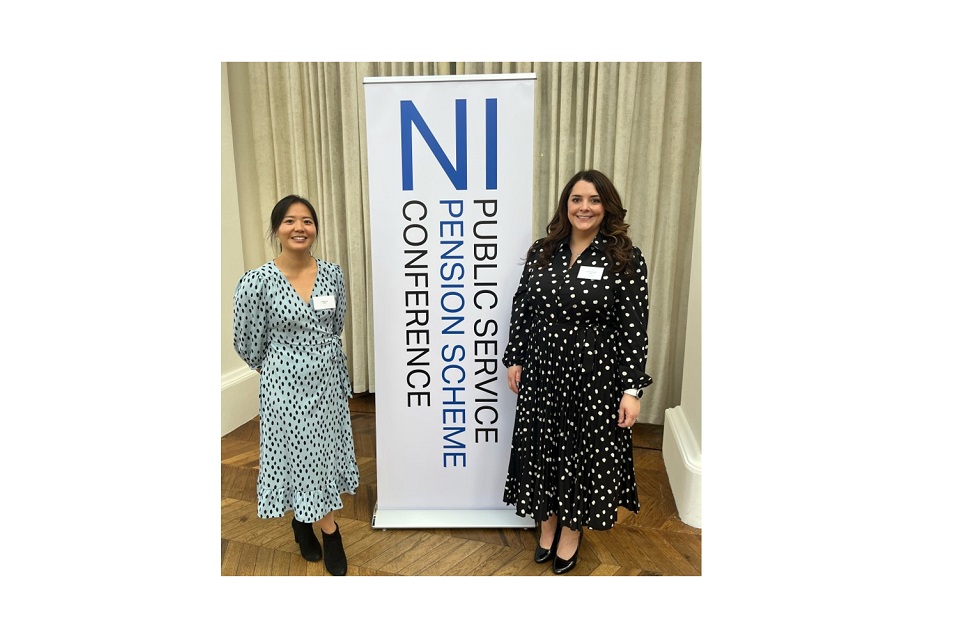Government Actuarys Department

Attendees at a public service pensions conference have heard from Government Actuarys Departments (GAD) pensions experts.
At the Northern Ireland Public Service Pension Scheme conference, GAD actuaries spoke about the core pensions work which is part of GADs portfolio.
GADs expertise
GAD undertakes actuarial analysis for the government and public sector to provide input into policy development, working with colleagues in other government departments.
Conference attendees heard from actuaries Louise Lau and Aimee Chadha who spoke about key projects which GAD works on in this area including:
- 2020 actuarial valuations including cost cap valuations
- post-COVID life expectancy
- other GAD projects such as the McCloud remedy benefits illustrator

GAD actuaries Louise Lau (L) and Aimee Chadha (R)
Significant projects
2020 actuarial valuations including cost cap valuations.
Aimee and Louise gave an overview of the actuarial valuation process. They discussed the key drivers for the changes in employer contribution rates in the 2020 valuations including the change to the SCAPE discount rate.
They also provided an explanation of the cost control mechanism. The government established a cost control mechanism for public service pension schemes to ensure a fair balance of risks between scheme members and the taxpayer.
Post-COVID life expectancy
This topic was also explored by the team. They talked about the differences in projected life expectancy improvements published by ONS in 2016 and 2020.
McCloud remedy benefits illustrator
This online platform was developed by GAD in response to the McCloud legal judgment. It uses projections to illustrate the benefits that eligible members might get at their chosen retirement age in either the legacy or reformed schemes. It takes expected future pay rises and working patterns into account. The resulting information helps scheme members understand the benefits which they may be eligible for during the remedy period.
GADs input
GAD actuary Aimee Chadha said: We were very pleased to present to this conference which attracted scheme administrators, policy officers and pensions board members from across Northern Ireland.
It meant we were able to share updates and expertise on the core and ongoing projects of our public serv
